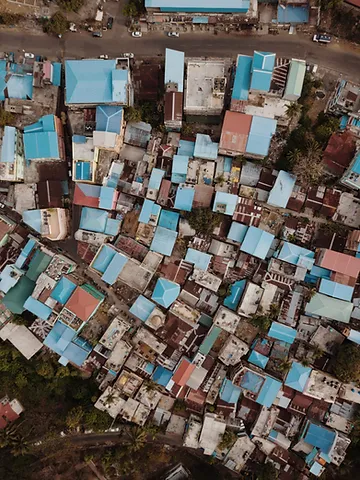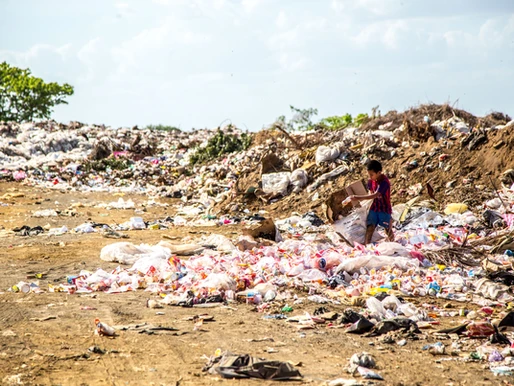Not only they produce a higher percentage of inorganic waste, they also generate a higher percentage of waste compared to developing nations. While developing nations have a waste generation rate of 1.3 Kg per person a day, a person in a developed nation generates waste at the rate of 3.1Kg per day. However, since developing nations such as India and China host one of the largest populations of the country, the absolute waste produced by these developing countries is the larger the waste produced by developed nations. Total waste generated by developing countries is 986 million tonnes per year whereas waste generated by developed nations is 566 million tonnes per year. Therefore, owing to the bane of an overwhelming population, individuals in developing nations consume less but cumulatively generate more waste than others.
On the other hand, owing to the boon of an overwhelming population, the supply of labour in developing countries is high. Due to a large supply of labour, developing countries are blessed with low-cost labourers which gives them a comparative advantage in labour intensive waste recycling methods over developed nation. Developed nations have access to a large amount of capital which in turn they invest in waste disposal trucks and smart IoTs. The capital required for these investments usually comes from taxes paid by the residents of the country. However, a developed country already has a low GDP per capita and also is home to a lot of slums that resides in the country.

These slums host a large number of people but most people in the slums and similar areas, aren’t capable of paying taxes, weakening the government’s ability to aid the growth of the waste recycling sector. This is when countries venture into privatization. While privatization improves efficiency in the sector, it also eliminates a lot of workers working in the informal sector. Workers in the informal sectors lose their livelihoods and perpetuate greater inequality and deepen existing poverty in the country. Therefore, developing countries need to aim at policies that promote more inclusivity and include the informal sector in the system.
A policy needs to be a result of a decision-making process wherein there is an appropriate representation of all voices in society. More often than not, only the loudest and the wealthiest voices unannounced policies, whose incentive is furthest from having an efficient waste recycling system. The poorest strata of the society are the ones who are the most intricately linked with the waste recycling sector of the country. Its always the poorest strata of the society that actively engages in cleaning, sweeping, collecting waste, disposing waste and thereby would have the largest incentive to demand better infrastructure and better equipment.
Unfortunately, these voices are usually heard because the wealthiest section of society has an incentive to exploit the environment. It incurs a cost to a company to dispose of the waste at a waste recycling center instead of the dump yard in the neighborhood; it incurs a cost to the companies to segregate and employ mechanisms to recycle huge volumes of waste. Therefore, a policy that endorses more investment in waste recycling centers and promotes the notion of inclusive waste management needs to be introduced in countries like India.

Including the workers from the informal sector in the waste recycling system would only facilitate a country’s growth. The informal refuse collectors are usually more efficient than the formal sector workers as they are quick to salvage the recyclable materials on the streets, even before the collection crews arrive. It is a necessity for them to be efficient, otherwise they lose their livelihood. Not only will they bring efficiency into the workforce, including them in the formal sector would give rise to more jobs in the country. There would be more income per household, which in turn would translate into greater consumption. A rise in the consumption would contribute to a higher demand for goods and services, which would result in an increase in the GDP of the country.
Along with that, including them to the formal sector would facilitate their education and exchange of knowledge. They will learn to work with different equipment and would be able to immerse themselves in the exchange of technology, knowledge and education. While a growing GDP enables better transfer of knowledge, it also enables a country to invest more in the waste recycling sector of the country. It would allow the country to invest in better machines, better technology would make the process of waste management a lot more productive and efficient.
In conclusion, there exists a vicious circle wherein poverty perpetuates poor waste management which in turn accentuates the existing level of poverty through lack of employment, idle resources and high health hazards which can wash away the only power that developing countries have been blessed with – its growing population that reduces the cost of hiring labour. Therefore, instead of catering to both the aspects of the economy in isolation, it is possible to alleviate both in unison. One of the plausible ways to do it is by endorsing an inclusive waste management system wherein the informal waste collectors and recyclers are part of the system. This will create jobs, increase demand for good and services and would also promote exchange of knowledge and technology – a step towards pulling a country out of poverty.

